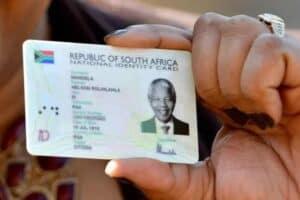South Africa's air traffic management faces risks of international bans due to outdated air safety procedures and staff shortages.

Failure to update regulatory procedures, systems being taken offline and lack of trained and experienced staff in the air traffic management sector have put South Africa at risk of being noncompliant with international air safety regulations.
This could lead to some countries banning flights into and out of the country, aviation experts said.
State-owned company blamed for air safety debacle
South Africa’s skyways are in turmoil, according to aviation role players, with some airlines blaming almost 30% of recent delays on Air Traffic and Navigation Services (ATNS) – the state-owned company that regulates the highways in the sky.
In total, around 15% of the world’s airspace is managed by ATNS.
ATNS last month closed several airports, including George and Umtata, due to outdated regulatory procedures not being updated on time, purportedly causing almost a thousand delays in 30 days across South African airports.
Even OR Tambo International Airport, the country’s main hub, was affected, though it was not shut, with six procedures past their sell-by date.
These operational setbacks can cost airlines millions of rands from diversions or burning excess fuel in holding patterns.
Late departures or arrivals mean travellers miss connecting flights and it also creates local and global operational knock-on impacts. It is also a safety issue.
Procedures must be certified every five years by the Civil Aviation Authority.
Significant damage done to SA’s reputation
Editor of International Air Affairs magazine Johan Lottering is concerned about the management of South Africa’s airspace.
“It is one of the critical elements that if noncompliant, could lead to a ban on foreign traffic,” he said. The likelihood of deeper systemic problems was undeniable.
David Frost, chief executive of the SA Tourism Services Association (Satsa), said the current situation is causing significant damage to South Africa’s reputation as a safe and reliable tourist destination and was unacceptable.
He said that there was a lack of communication and transparency surrounding the shutdown.
“Satsa, with the rest of the industry, was given no warning and no timeline for resolution. We’re flying blind, unable to reassure our clients or make informed decisions to mitigate the damage.”
Organisation Undoing Tax Abuse chief executive Wayne Duvenage said that ATNS had erred on such a grand scale was shocking.
“That they’ve been allowed to fail for as long as they have would indicate one of two things missing: either the political leadership, the shareholder, which is government, is out of touch with what’s happening.”
The other possibility, he said, was that the state-owned company’s leadership was lacklustre and incompetent human capital should be dismissed.
The Citizen approached several airlines about the extent of delays and the financial and operational implications.
Not a single carrier would speak on the record, citing fears of retribution from ATNS.
“When you say negative things about ATNS, they can cost you a lot of money,” one executive said.
“It’s not worth speaking out as a brand, We’d rather leave it to industry organisations than face air traffic’s wrath.”
ALSO READ: Is SAA seeking more tax money?
DA was concerned for some time
Chris Hunsinger, DA spokesperson on transport in parliament, said they have been concerned about ATNS for some time.
He cited inadequate air safety transparency and ineffective oversight by the ATNS board.
Hunsinger pointed to a lack of accountability and technical insight in addressing issues, with responses to air safety queries often unsatisfactory, leaving International Civil Aviation Organisation inspections as the only reliable measure.
He blamed political instability, with six ministers of transport going through a seven-year revolving door, as the main problem.
Minister of Transport Barbara Creecy this week gave ATNS two weeks to get its house in order after meeting the company 10 days ago.
Duvenage suggested that external oversight should be considered, adding: “If I was Creecy, I would get independent forensic auditors and investigations into all these troubled entities like SAA and ATNS.
“If anybody is found wanting, they must be fired. Quickly.”
ATNS like a boxer not hearing the bell
Lottering said that “some sort of crisis summit or commission should be established.”
Role players should be locked in a room until they come up with a sensible and viable solution.
“Right now,” he said, “ATNS is like a staggering boxer who needs help, but is not hearing the bell.”
On Wednesday, ATNS said that it was making progress in sorting out the mess. Senior members of ATNS’ executive team participated in an open forum with The Citizen.
During the meeting, chief operating officer Josia Manyakoana admitted that ATNS was behind in submitting the procedures.
He said there was a shortage of flight procedure design specialists in SA.
The shortage was a global issue. To address this the organisation has implemented a robust training pipeline.
But, said Hunsinger, the challenges impact more than just airlines.
“The tourism and travel sectors are reliant on the smooth operation, long-term provision and ability of ATNS,” he said.
“Any restrictions on safe departure or landing access impacts aviation business. This adds risk of various forms of loss.”
ALSO READ: SAA accused of another sensitive data breach
Support Local Journalism
Add The Citizen as a Preferred Source on Google and follow us on Google News to see more of our trusted reporting in Google News and Top Stories.








